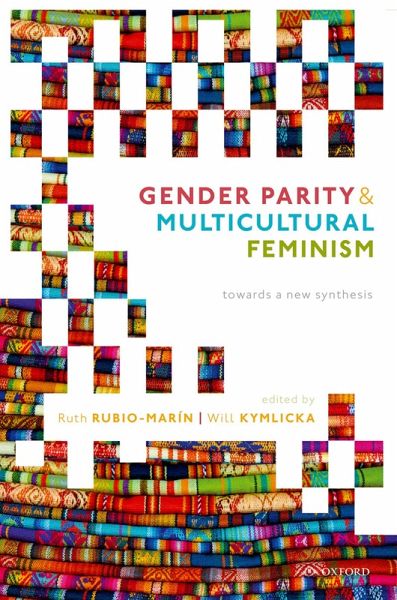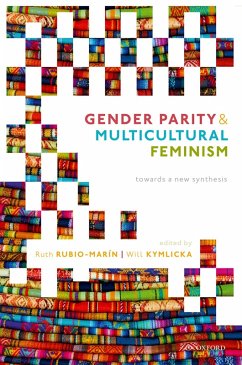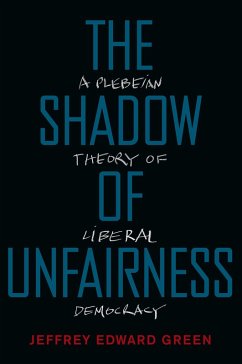
Gender Parity and Multicultural Feminism (eBook, PDF)
Towards a New Synthesis
Redaktion: Rubio-Marín, Ruth; Kymlicka, Will

PAYBACK Punkte
19 °P sammeln!
Around the world, we see a 'participatory turn' in the pursuit of gender equality, exemplified by the adoption of gender quotas in national legislatures to promote women's role as decision-makers. We also see a 'pluralism turn', with increasing legal recognition given to the customary law or religious law of minority groups and indigenous peoples. To date, the former trend has primarily benefitted majority women, and the latter has primarily benefitted minority men. Neither has effectively ensured the participation of minority women. In response, multicultural feminists have proposed instituti...
Around the world, we see a 'participatory turn' in the pursuit of gender equality, exemplified by the adoption of gender quotas in national legislatures to promote women's role as decision-makers. We also see a 'pluralism turn', with increasing legal recognition given to the customary law or religious law of minority groups and indigenous peoples. To date, the former trend has primarily benefitted majority women, and the latter has primarily benefitted minority men. Neither has effectively ensured the participation of minority women. In response, multicultural feminists have proposed institutional innovations to strengthen the voice of minority women, both at the state level and in decisions about the interpretation and evolution of cultural and religious practices. This volume explores the connection between gender parity and multicultural feminism, both at the level of theory and in practice. The authors explore a range of cases from Europe, Latin America, the Middle East, and Africa, in relation to state law, customary law, religious law, and indigenous law. While many obstacles remain, and many women continue to suffer from the paradox of multicultural vulnerability, these innovations in theory and practice offer new prospects for reconciling gender equality and pluralism.
Dieser Download kann aus rechtlichen Gründen nur mit Rechnungsadresse in A, B, BG, CY, CZ, D, DK, EW, E, FIN, F, GR, HR, H, IRL, I, LT, L, LR, M, NL, PL, P, R, S, SLO, SK ausgeliefert werden.













